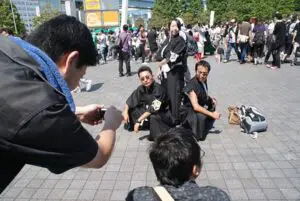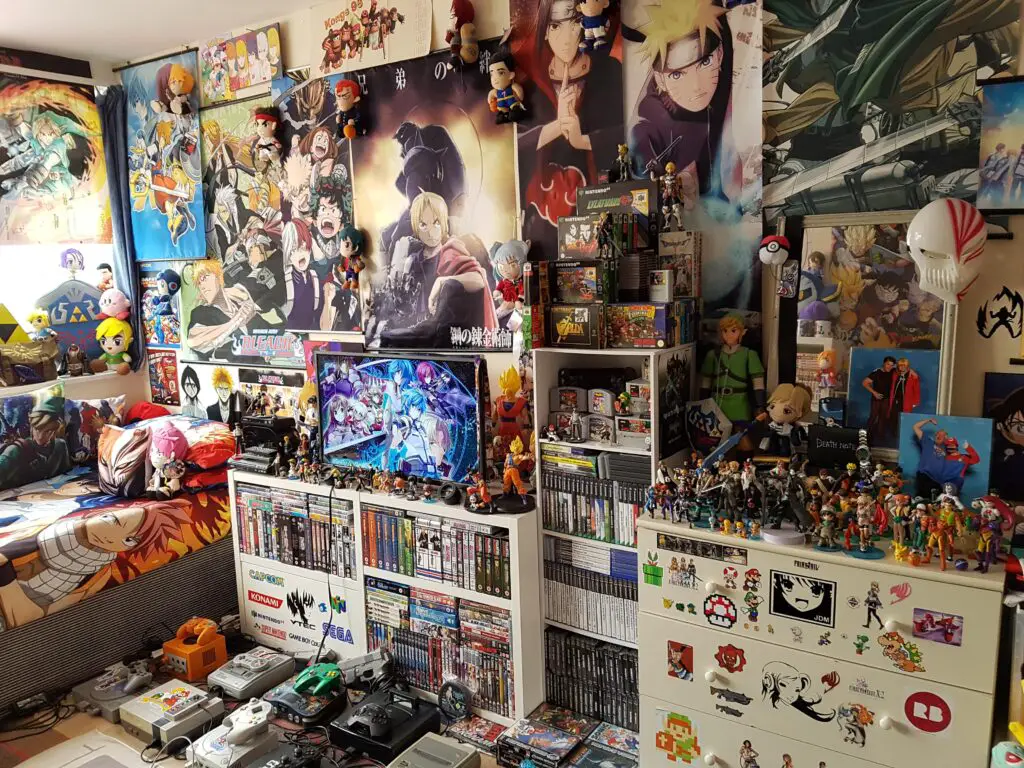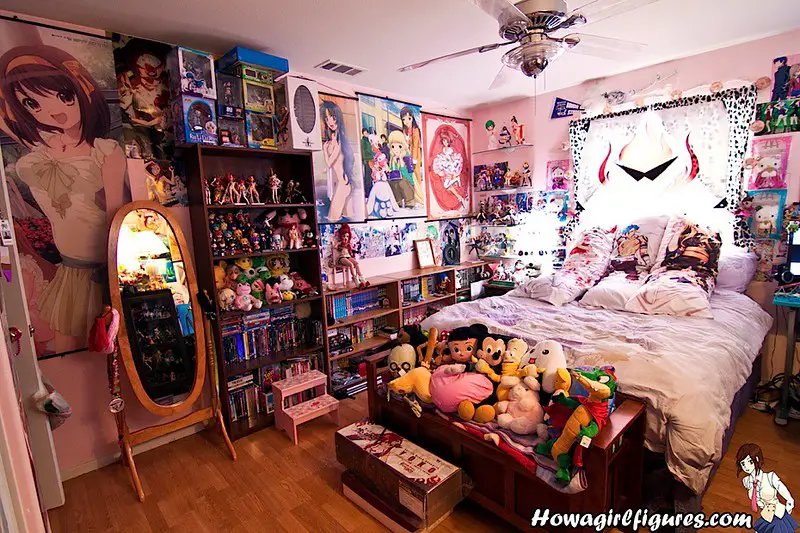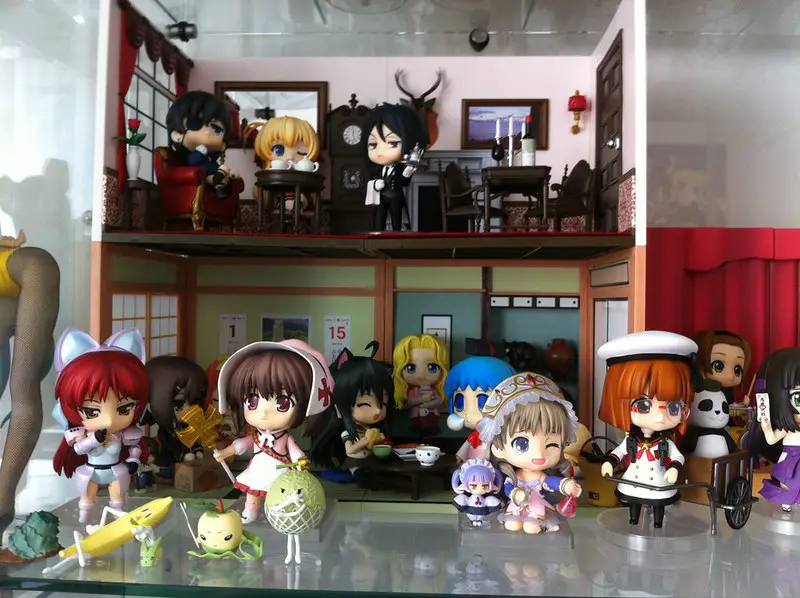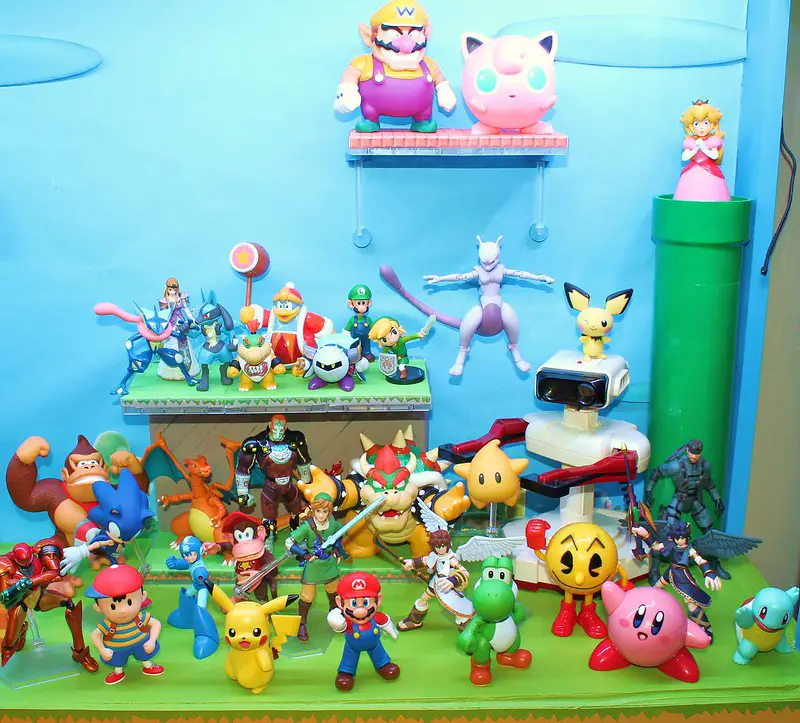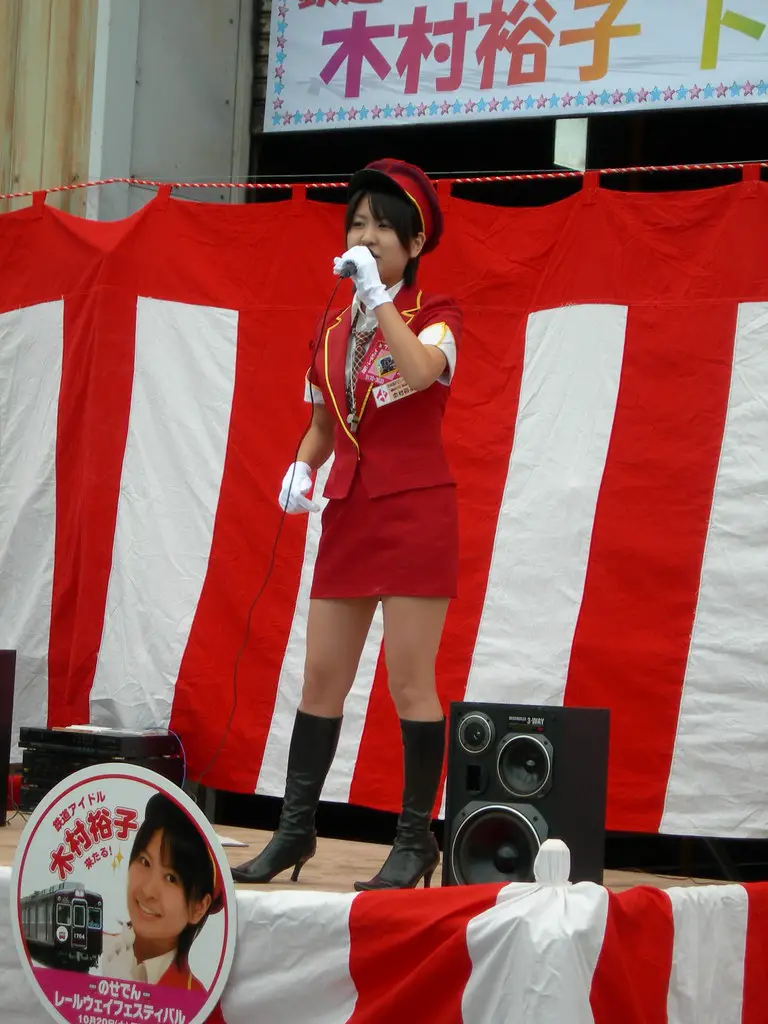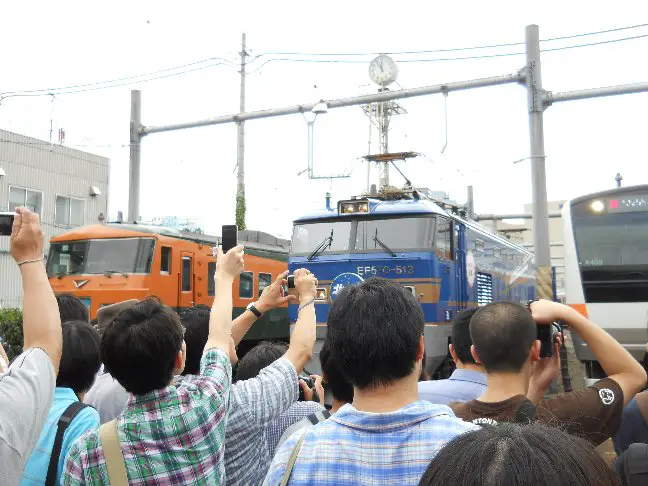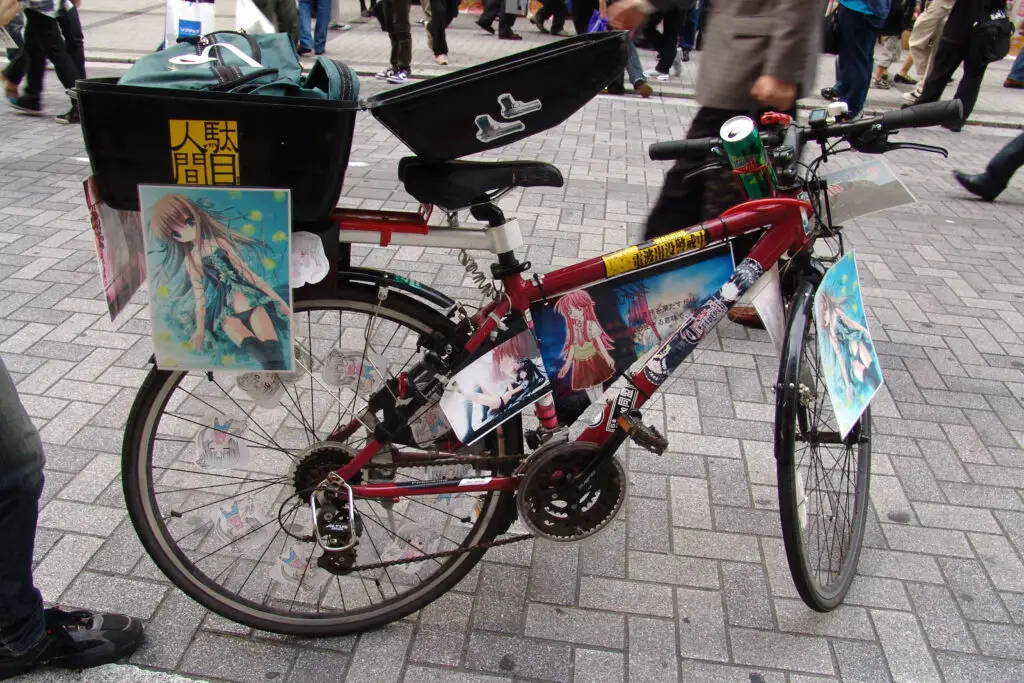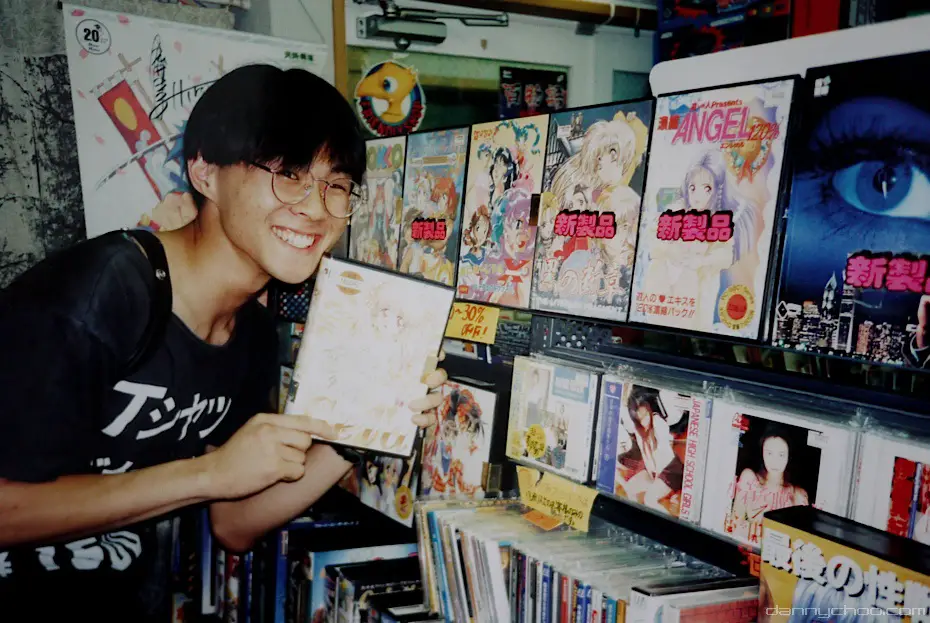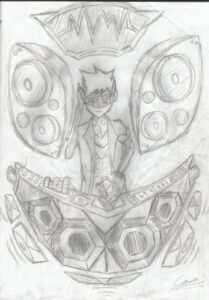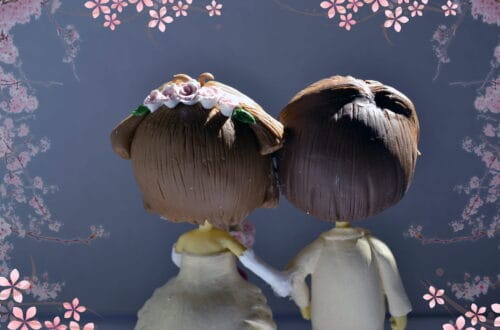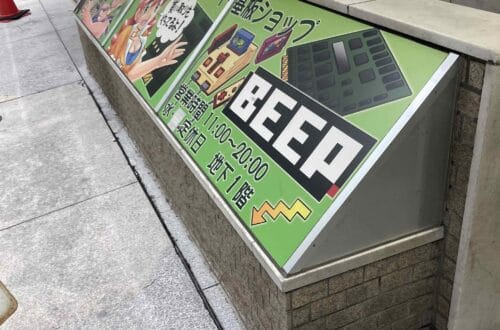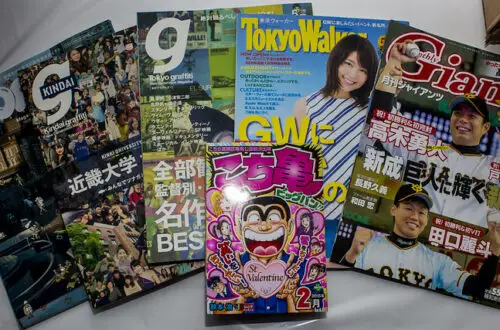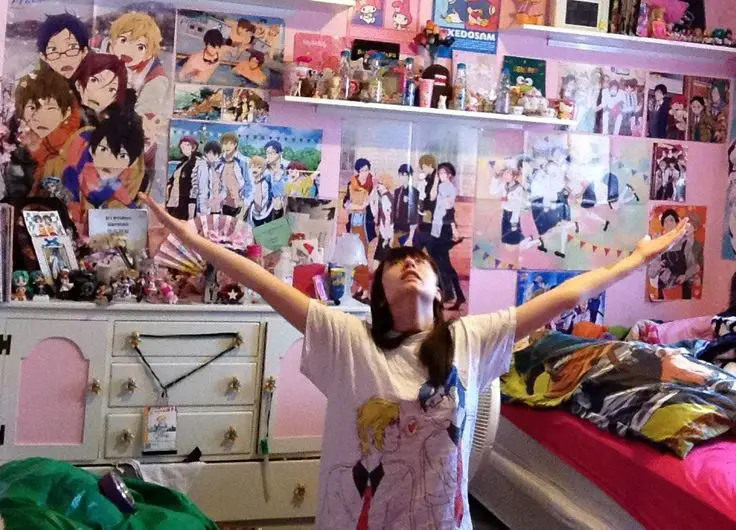
Otaku: Japanese ‘Obsessive’ Subculture Explained
The mention of the word ‘Otaku’ probably conjures up images of manga or anime. But what does it really mean?
Otaku is loosely translated as a ‘nerd’ or a ‘geek’. The Japanese meaning of Otaku is someone obsessed with something related to popular culture to the extent of being socially withdrawn. It indicates extreme fandom or complete immersion in some hobby or interest.
Quick Navigation
Japan has a rich culture. The obsessive otaku subculture in Japan attracts a lot of curiosity. Here is all you need to know about otaku right from its origin to its current state in Japan and outside.
So, what is Otaku?

Otaku refers to the subculture of obsessive fans of certain elements of popular culture. The word is also used to identify members of this subculture. This is a Japanese slang word. It was adopted in the English language from Japanese. It refers to anyone who is a hardcore, obsessive fan.
The dictionary meaning of Otaku also reflects this:
Noun (otaku)
(In Japan) a young person who is obsessed with computers or particular aspects of popular culture to the detriment of their social skills.
The Oxford English Dictionary
It normally refers to young people, typically teenagers and people in the early twenties. The most common otaku types are manga, anime, and video games. But there are other types of otaku, too.
What does an Otaku look like?
Old school Otaku

At the time when this term was coined for the media, an otaku was considered to be an unattractive male. Typically their physical attributes or dressing would be thought of as below:
- Long hair
- Thick glasses
- A tucked-in shirt
- Washed pair of jeans
- Sneakers
- A rucksack
People thought otaku are always absorbed in the virtual world. The word also came to mean people who preferred staying at home. Also, they were thought of as awkward enough to not have a love life. Rather, they would think of anime or video game characters as the woman of their dreams.
New age Otaku
Today’s otaku has changed in appearance. They wear flashy clothes, colorful sneakers. Also, their fashion sense is inspired by their favorite pop culture characters. Today, the term otaku is no longer limited to men. Women are also a part of the subculture.
So, you can see them with spiky hair dyed in bright colors. Also, some otaku dress in cosplay type of clothes. You might think it’s Halloween! Or, you could have men and women who look perfectly normal. They could dress in regular clothes and still identify themselves as otaku.

A hardcore Otaku fan’s room 
Another room filled with Japanese pop culture merch 
Otaku enthusiasts collect plastic figures of their favorite characters 
Video game collection of an Otaku fan 
Collectible action figures of video game characters
But, their passion for their interest has not changed. Thus, they still collect CDs, DVDs, comic books, collectible figures of characters, etc.
What are the different types of Otaku?
Otaku is majorly used in reference to the fandom of anime or manga. However, there are many other types of interests that warrant the usage of the term. Some of these are given below.
Types of Otaku according to areas of interest
The most exhaustive study into the types of otaku was probably carried out by the Nomura Research Institute in 2004 and 2005. As a result of the study, as many as twelve different types of otaku groups as given below.
- Manga otaku – related to the Japanese manga comics
- Idol otaku – related to Japanese personalities, usually young girls trained in singing and other forms of entertainment.
- Travel otaku – related to travel as a passion
- PC otaku – related to technology around computers
- Video game otaku – related to video games
- Automobile otaku – related to the obsession with cars or motorcycles
- Anime otaku – related to Japanese animation films
- Mobile IT equipment otaku – related to cellphones and accessories
- Audio-visual equipment otaku – related to technology in this area
- Camera otaku – related to anything to do with cameras and photography
- Fashion otaku – related to the fashion industry
- Railway otaku – related to those who are passionate about trains and everything about trains
Besides the above types identified in the NRI study, there are other types, too. They include otaku related to the internet or ‘cyber otaku’. Also, tech geek otakus are ones obsessed with everything related to technology.
Types of Otaku according to individual behavior
Types of otaku based on the individual’s attitude towards fandom are:
- Closet Otaku – These are people who are not completely disconnected from the real world. So, they are more mature and have a reasonable social life. Usually, they are secretive about their excessive interest in a subject. For example, a closet otaku of anime will secretly spend money to build their collection of anime figures. Thus, their close family and friends might not be aware of this obsessive interest.
- Serious Otaku – These are the serious types of otaku. Thus, they hope to bring about a change through their interest in a particular subject. They take their passion very seriously. Also, they are obsessed with getting a breakthrough of some kind.
- Media-sensitive multiple interest Otaku – These are people who follow the media trends. They are easily influenced by trends. Thus, they can be involved in different otaku interests.
- Fan magazine-obsessed Otaku – This group of otaku is mainly consisted of females, though there are males, too. They have a special attraction towards characters in video games, anime, comic books, etc. Also, they show an interest in creating art around these characters.
- Trivia otaku – People falling into this type will not just watch their favorite series or read their favorite comic books. They will research the plot lines. They will find out everything about the characters. In fact, they almost consider the characters are real people.
The meaning and origin of the word ‘Otaku’
Otaku is a Japanese word, adopted in the English language without any change. The Japanese word otaku means a person’s home or family (‘your house’ or ‘your family’). When speaking to a woman, it could also mean ‘your husband’. In general usage, it means “you” in a polite way.
Some translations indicate that otaku is a term for “thou”. This specifies that people used this word in a formal setting. Some believe that polite housewives used it to address people they did not know well enough.
Volker Grassmuck, in his essay published in 1990 titled I am lone, but not lonely, adds more light. He says that ‘otaku’ was used between two individuals when they were not aware of each other’s social status. It is a term of detachment which came to be used for co-workers and friends around 1980.
Volker further adds that it is unclear when the term otaku came to be used in its current meaning. But, according to some personal accounts, at some point, anime and manga fans started using the word. They used it for exchanging notes on these interests of theirs. They used it to address each other in a detached and impersonal manner. And then, Akio Nakamori publicized the term as described here.
The origin of the word ‘Otaku’ with reference to the subculture
The word otaku in reference to pop culture finds its way back to the 1980s. It was Akio Nakamori, a columnist and editor, who used the word in his essays. The Japanese magazine Manga Burriko published these essays from 1983 onwards. His essays were part of a series titles ‘Otaku no Kenkyu’ (Studies of Otaku). Nakamori was responsible for bringing out the obsessive side of the fans.
He used the word otaku to refer to those people who were hardcore fans of a subject. Nakamori also brought out the stereotypes related to otaku. He portrayed them as being in the world of their own. According to him, they lacked social skills and were unpopular. This is one of the reasons why the term otaku felt like an insult.

Only in the last few decades has the word come to mean a nerd or a geek in the broad sense of the terms. People who identify themselves as otaku also use it to address other people who might share the same interests.
So, in short, ‘otaku’ refers to the subculture of obsession with an interest in pop culture or to individuals obsessed with pop culture.
How did ‘otaku’ become a bad word?
The damage Nakamori caused to the word got worse in 1989. This was when Tsutomu Miyazaki’s serial murders came to light. Miyazaki, who was dubbed ‘The Otaku Murderer’, kidnapped, murdered, and sexually exploited four young girls. This completely decimated the image of otaku.

Investigations revealed that Miyazaki’s house had a significant collection of anime films. Thus, the police concluded that he was an otaku. And, the media labeled him ‘The Otaku Murderer’.
News reports on Miyazaki described him not just as a serial killer, but also as an otaku, and this was what really brought the term to the public and shaped perceptions of it. The media implied that Miyazaki committed the crime because he couldn’t tell the difference between reality and fiction.
Eiji Otsuka, Japanese anthropologist
In the same year as the gruesome murders, a popular magazine, Bessatsu Takarajima, dedicated their issue to otaku. It contained articles that explored this subculture in great detail. The term otaku thus became a part of everyday vocabulary. Incidentally, Nakamori was also one of the writers for this issue of the magazine.
The Evolution of Otaku in Japan
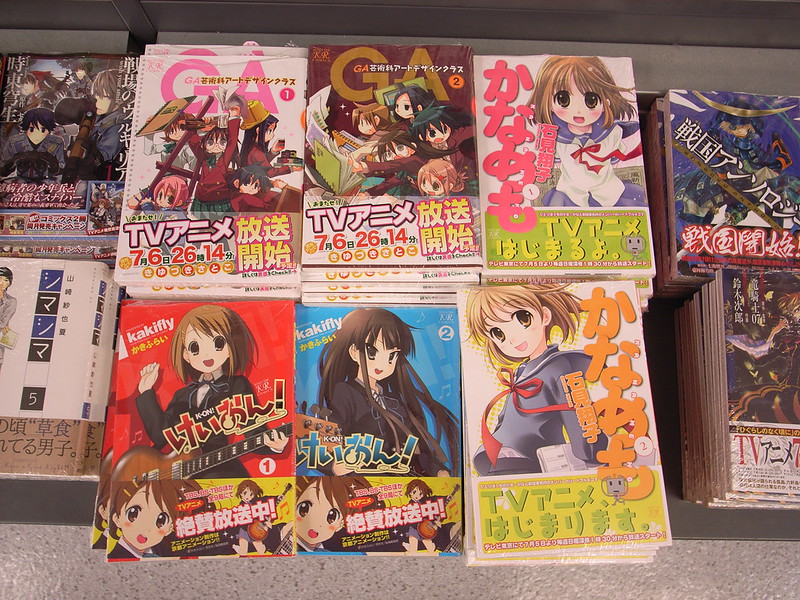
Pop culture in Japan goes back to the 1970s and 1980s. But it had always been a misunderstood culture. However, some might argue that the misgivings had reasons.
After the portrayal of otaku in the media in the 1980s, the Japanese society was anxious. They worried about the influence of otaku on their youth. And this anxiety was carried into the current times, too, to some extent.
The acceptance of Otaku in Japan
The bad publicity around otaku during the 1980s and 1990s slowly started fading at the turn of the new millennium. The major indicator was when Takeshi Murakami, an artist, won a lot of acclaim for his. His art depicts something about the otaku subculture. As a result, Otaku became more acceptable as a concept. Thus, the Japanese became more tolerant of this term.

And then, former Japanese Prime Minister Taro Aso claimed to be an otaku himself. Aso also used the word otaku to promote Japan in foreign affairs. A survey was conducted in Japan in 2013. As a result, 42.2% of people admitted that they consider themselves some type of otaku.
Today, otaku is a much more accepted term. It is even seen as a badge of honor by people who identify themselves as otaku. But has the mindset of traditional Japanese changed, yet?
What do the Japanese think of Otaku?
In Japanese culture, the word otaku is still used in a somewhat derogatory sense. The Otaku are believed to be obsessed with their hobby. They might spend lots of time and money on it. They also take their obsession very seriously.
Thus, old school Japanese people view the Otaku culture with contempt. They think that otaku fans lack social skills and live in the virtual world. They also believe that otaku are not able to have real relationships.
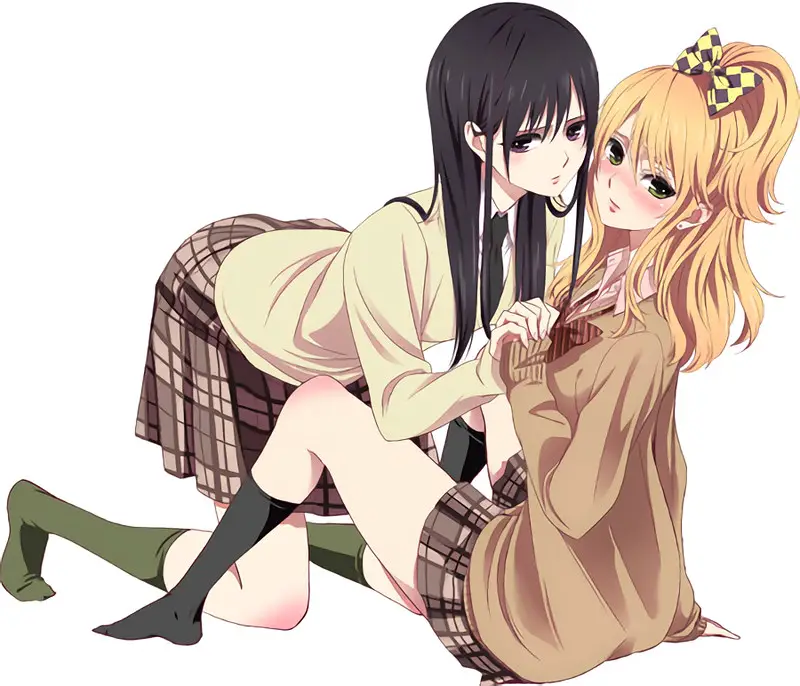
Otaku is also connected with manga or anime art that depicts taboo subjects. Homosexuality, violence, pornography, or other explicit themes are common. In the cyber world, people think of otaku as a group of hackers. Thus, they treat otaku with distrust and fear.
However, businesses and even the Government of Japan have shown a positive interest in otaku. They favor promoting otaku to portray the image of Japan as cool. And that is ironic.
The irony of Cool Japan is that the otaku are disregarded within Japanese society as undesirables.
Kendra Sheehan, in The Otaku Phenomenon: Pop Culture, Fandom, and Religiosity in Contemporary Japan (November 2017)
The irony continues to this day. Japan encourages and receives a lot of Otaku tourism. Also, the ten-figure Otaku market in Japan is thriving. However, the subculture has not been completely accepted by the Japanese.
Otaku subculture outside Japan
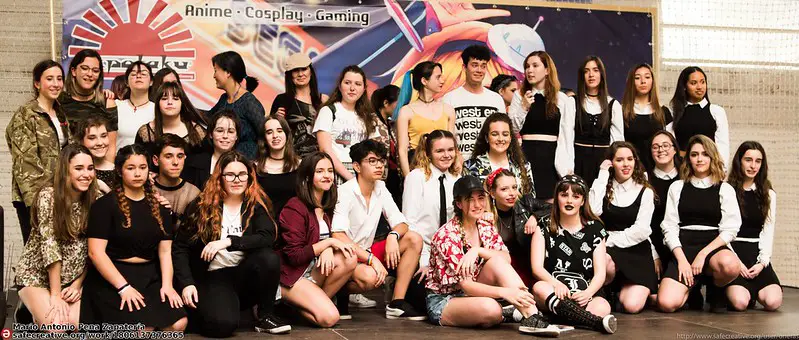
Anime and manga have always had a fan following outside Japan, too. But the western world was introduced to the word otaku sometime in the early nineties. The word was already in use among anime fans in Japan by then. But it hadn’t caught up in western countries.

As Otaku no Video was released in America in 1992, the word became popular. Otaku no Video was an animation series with a spoof-like take on the lifestyle of otaku. It was first released in Japan in 1991.
This nerdy, geeky subculture quickly found many followers in the U.S, U.K, and European countries. It also found its way into other Asian countries. Today, otaku are everywhere. And, they are connected with each other through their common passion and the internet.
What does the rest of the world think of Otaku?
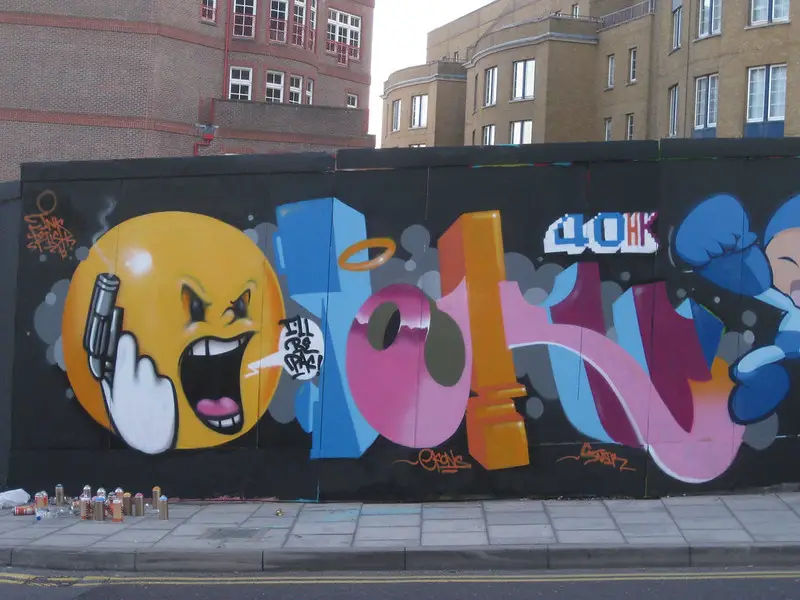
Otaku is a much more acceptable phenomenon outside Japan. People look at it with admiration. This admiration is more in those that are proud geeks. In fact, people find otaku to be ‘cool’. Hardcore Otaku fans outside Japan are keen to visit the country. Thus, a lot of tourists come to Japan to experience and observe this subculture.
In the U.S., calling someone an otaku is not considered rude. Usually, the word is used for fans of anime or manga. It is equivalent to the English word ‘geek’ in America.
In the U.K. otaku is used for someone with a strong interest in a subject which not many understand. It is similar to the British slang word ‘anorak’. Thus, this is similar to the word ‘nerd’.
In Australia, otakus are admired for their vast knowledge in their area of interest. In fact, it is like a badge of honor. It is used for those with an obsession for anime, manga, cosplay, and video games. Thus, this is a well-respected word in Australia.
The current state of Otaku
Otaku today are mostly identified by their interest in Anime, Manga comics, Video games, or girl Idols. The whole ‘cool quotient’ of being associated with something that is nerdy or geeky has made otaku popular. More and more youth are openly otaku and take pride in it.

Most of the otaku today, are not socially inept individuals. So, they don’t sit holed up in their houses playing video games all day. These are people who are passionate about their interests. There are online as well as offline communities for different types of otaku interests. So, the otaku can socialize, interact, and exchange ideas.
The Otaku are those that are not just the consumers of content on pop culture, but also creators. So, an anime otaku might draw his favorite characters. Similarly, a manga otaku might create blogs about his favorite series. A video game otaku might publish trivia about his favorite game. In this way, the line between the producer of the content and the consumer blurs.
The Mecca of Otaku – Akihabara

Akihabara is the area around the Akihabara Station in the Chiyoda ward of Tokyo. It is the culture center for otaku. Earlier, it was just a shopping haven in Japan. But now, it is the home to all things otaku.
Once you step into the streets of Akihabara, you will feel as if you have entered the Japanese comic world. Symbols and icons from pop culture are everywhere. The place is full of stores selling pop-culture merch. Also, there are karaoke places and cafes. And you can see youth dressed in clothes inspired by pop culture.
The buildings in this place are designed according to the preference of the otaku. So, no glass walls here. Opaque structures are used. Thus, the otaku can stay behind the walls as they indulge.
Akihabara is a place that promotes a free market. Thus, many otaku creators find takers for their art in the streets of Akihabara. Amateur manga, for example, finds an audience here. Thus, you will find everything from anime to manga here. Akihabara also has things related to video games and electronics. And, you will find cosplay accessories here, too.

Maid cafes in Akihabara
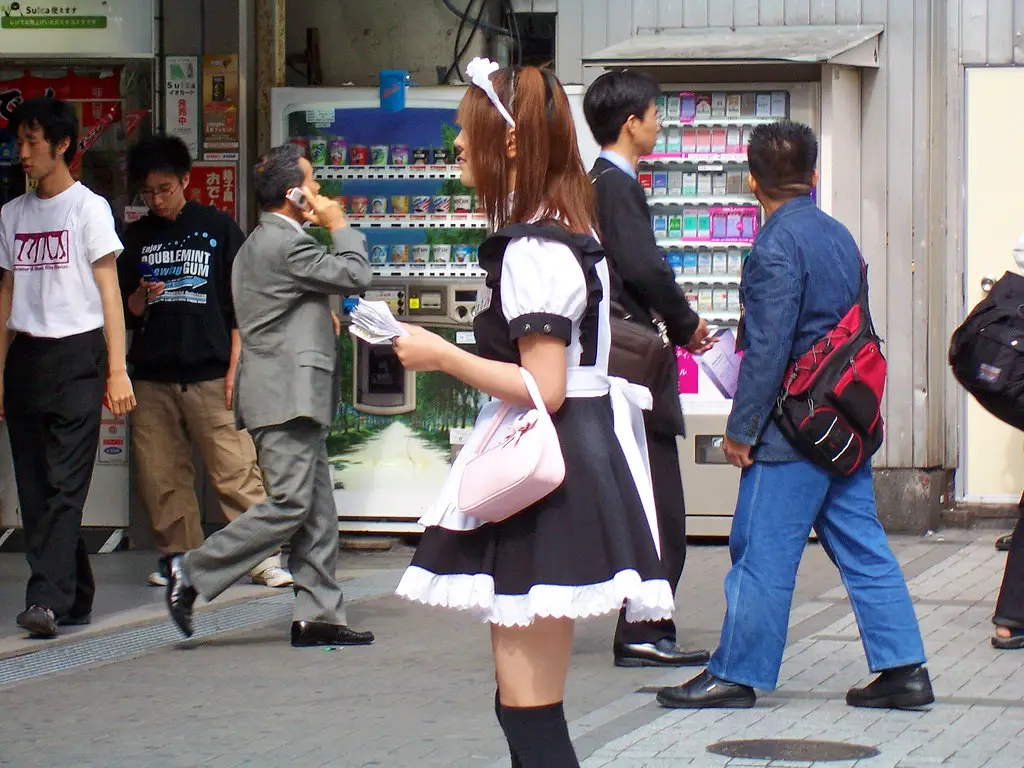
Akihabara is also known for its maid cafes. These cafes are just like regular cafes. But the waitresses are all girls, dressed as maids. The aim of these cafes is to help the customers to live their fantasy. Thus, they are treated like masters and are served by the maids.
Otome Road, Ikebukuro
One more popular place for the otaku is Otome Road in Ikebukuro in Tokyo. It is a popular place to buy things related to manga and anime. But, is more focused on women.
If you need help navigating in Japan, this article will help!
Otaku Vocabulary
Some otaku-related words in Japanese are given below. Most of these words have been adopted into the English language. Also, they are quite well-known among otaku fans all over the world.
| Japanese word | Meaning |
| gakuran | a uniform worn in the middle school or high school in Japan |
| chibi | small and cute |
| kawaii | cute |
| kimoi | disgusting |
| Senpai | someone who is senior to oneself, also someone who has more experience or knowledge |
| Sensei | a teacher |
| waifu | a fictional character or an Idol girl, for whom an otaku develops affection |
| mangaka | an author or a creator of a manga comic book |
| yuri | romantic love between two women |
| yaoi | romantic love between two men |
| hentai | an erotic genre of anime and manga |
Related Questions
What is a Weeabo?
It is a term similar to otaku. But, it is far more negative. The word refers to non-Japanese people obsessed with Japanese culture. Their obsession might be to such an extent that they wish they were born Japanese. The Japanese use this word for non-Japanese people.
However, today, most of the otaku outside Japan own up to this word. They even use it in a humorous manner. Thus, this word is also becoming more acceptable.
What is a Hikikomori?
A Hikikomori is different from an otaku. It is used to refer to those people who prefer being indoors or generally love being alone. The literal translation can be ‘being confined’. So, an otaku can be a hikikomori. But, vice versa might not be true. These people withdraw from society. They give up education or work and even friends and other relationships.




